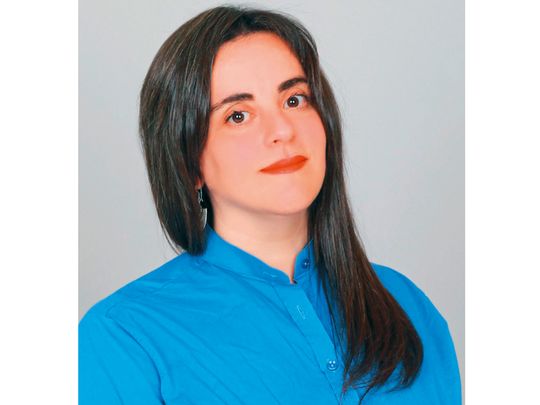
Please share a brief profile of your brand and service or product portfolio.
Climate Strategies is a consultancy advising public and private stakeholders on clean energy, decarbonisation, sustainability/ESG and climate. We work at the intersection of policy, finance and business strategy to deliver holistic, tailored solutions with the goal to become a trusted partner of decision makers and industry champions and the long-term vision to empower a just energy transition and the achievement of climate goals to help institutions, corporates, governments and NGOs.
Our services encompass policy and market analysis, climate risk assessment, climate stress testing, climate risk assessments, climate scenario analysis, business development and partnerships set-up, decarbonisation roadmaps, ESG reporting and disclosures strategy and assistance. It also encompasses bankability assessment of projects, advisory on climate finance including advising the client from concept note to board approval, capacity building, content creation and digital transformation focused on sustainability and climate.
How did you first get involved in the sustainability and green economy story?
I have started my career in clean energy, then moved to climate finance working for several development banks and climate funds, then took on senior sustainability advisory roles in international organisations and climate high-level events (e.g. COP) so we can say that as a professional I am “born and raised” within the green economy. It’s been also the opportunity to work in 3 different continents and with a global remit, true demonstration of the fact that climate is a global problem and requires global collaboration.

What are the recent initiatives that your brand has fronted in the field?
We are obviously working a lot with companies in setting up decarbonisation strategies and ESG reporting strategies. For example, for a cement company in Oman, we developed their first decarbonisation roadmap, starting from the baseline emissions assessment and energy and resources use, before mapping process control systems to optimise kiln operations and suggesting technological solutions to deeply as long-term investments. We then identified low hanging fruits for emission reductions prioritising impact/redditivity ratio, and conducted a needs-based assessment to understand capacity development and resourcing requirements in the short, medium and long term.
That was also instrumental in optimising an internal stakeholder strategy and a reporting framework to respectively enable and monitor company transformation.
For another Chinese company, a solar PV manufacturer, we assessed the feasibility of setting up a high-efficiency PV-panels manufacturing facility in three different countries in the Gulf, with a deep dive on Saudi Arabia.
Investors (such as Sovereign Wealth Funds) are obviously more interested in decarbonisation at a portfolio level, as well as in establishing investment criteria. For one of these we have provided an assessment of the baseline and suggested a roadmap combining green investment strategy and criteria, decarbonisation plans for some key positions, and an exit strategy for the residual or non-performing part of the portfolio. In parallel we provided capacity building for the executives and members of the board.
We also work internationally with NDAs and national entities at a concept-note level to access financing from leading development banks. For example, we are currently working with an East African state on the concept note and structuring of an e-mobility programme.
In the past year we also helped conduct and structure the content for the first ESG International Summit in Saudi Arabia, which also had a session in Dubai just last week.
At the same time, we are supporting some international working groups. For example, with the Green Grids Initiative and UNESCAP, I am leading a workstream aimed at drafting some climate finance principles for Green Grids, and with the World Association of Public-Private Partnerships I am collaborating on an article trying to identify and address access barriers to climate finance. In both cases, we aim to present the results for consultation at COP29 this year.
It’s hectic times but promising ones, and it feels great to be part of a nascent leading voice in the global green economy.
How do you see the UAE’s green economy initiative expanding over the next five years and how is your brand going to contribute towards the narrative?
The UAE has championed the green economy in the region: I see the initiative gaining articulation and depth in all its 6 fields, particularly in policies, nature-based solutions and innovative technology manufacturing.
The way we want to contribute is at the institutional level, to help shape the policy framework further, to a level of maturity that enables streamlined access to funding, securitisation beyond the mega-funds and the utilisation of innovative financial products. We also want to help the institutions develop synergies between the 6 fields of the green economy, the increase socioeconomic benefits exponentially but also to develop systemic resilience.
At the corporate level, we want to help our client connect the dots between decarbonisation, green finance and sustainability reporting to maximise return of investments but also to ensure continuous improvement even after our services reconcluded.
Finally we would like to connect institutional and private companies in a multi-stakeholder dialogue because that’s indispensable for effective policymaking and industrial development, particularly when it comes to energy transition, and as such it’s the key to develop and maintain a country’s competitive advantage nowadays.
How do you chart your personal contributions to your brand in terms of driving the green economy story forward over the next decade?
In 10 years time, I’d like to think of having founded a brand that’s one of the leading sustainability advisories in the region, one that started in the Gulf to then later expand internationally.
I would like my brand to be leading not only and not primarily by business volume but for the robustness of its solutions, its level of impact on the green economy in the GCC and for how it facilitates innovation at the service of climate action.







